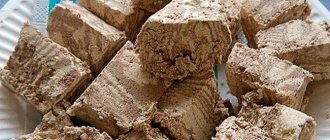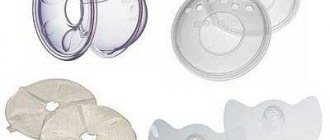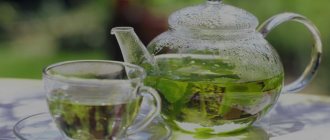A little about the drink
Coffee is perhaps one of the most popular drinks. It is produced from coffee beans. Now there are different types of this drink. For example, natural coffee, which is made by grinding roasted beans and then cooking. There are also many varieties of it, and no less brewing methods. Almost every country has its own signature recipe.
Also, other popular types of coffee have recently appeared:
- soluble;
- in powder form;
- also available in granules.
Each of the above types has its admirers and lovers.
The composition of coffee and its effect on humans
What effect does coffee have on the human body? The most famous ability, which is why this drink is so popular, is its ability to invigorate a person. Many people cannot imagine their morning without a cup of coffee. Another effect it has on the human body is that it has a diuretic effect. It is also indicated for hypotensive patients and those who suffer from migraines.
Coffee also contains a sufficient amount of useful substances (amino acids, vitamins, etc.). All this makes this drink not only tasty, but also healing.
The effect of coffee on an infant through mother's milk
What consequences can there be for a baby if you drink coffee while breastfeeding?
- The child becomes more excitable.
- A rash may appear on the body.
- Since coffee is a diuretic, the baby may lose a lot of fluid due to the mother drinking this drink.
- When prescribing drugs that contain caffeine, an overdose is possible.
- Also, the components of the drink can affect the speed of removal of calcium and other useful substances from the body.
However, you should not take all of the above literally. Many experts believe that a nursing mother can drink coffee if the child’s body reacts to it normally. To do this, you should check the baby’s reaction with a small amount.

Research by medical specialists on the topic “Coffee and the Infant”
However, many doctors believe that this drink is harmful to consume during lactation. This is due to the fact that an adult eliminates caffeine much faster than an infant. Therefore, there is a risk of its accumulation in the body. As a result of this, the child’s nervous system is constantly too excited, but during this period it is actively forming and becoming. The baby will have normal caffeine withdrawal only by the age of one year.
In addition to irritability, a child can also acquire allergies of varying degrees due to its large accumulation in the body.
This is precisely why doctors justify why breastfeeding mothers should not drink coffee. And if it is possible not to use it during lactation, then it is better not to neglect this advice.
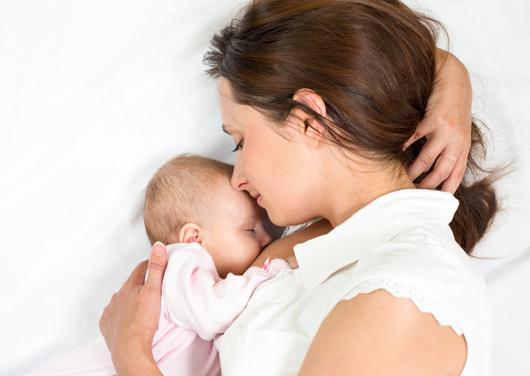
Recommendations for mothers who drink coffee during lactation
In order for the child to feel good if the mother still drinks this drink, and also to reduce the possible risk, some rules should be followed:
- refrain from using it immediately after the baby is born (three months), when he is adapting to the world around him and to new food;
- if it is impossible to live without coffee, then it is better to introduce it into the diet in the first half of the day so that the child is not overexcited in the evening;
- it is also necessary to drink the drink immediately after the baby is fed;
- when drinking coffee while breastfeeding, it is necessary to have a lot of liquid on the menu;
- it is also necessary to include in your diet foods that contain large quantities of calcium (since coffee promotes its rapid removal from the body);
- It is also recommended to drink it every other day, one cup, so that there is time for caffeine to be removed from the baby’s body;
- review all caffeine-containing products and limit yourself to just one.
If you adhere to the above recommendations, then it is quite possible to avoid negative manifestations. The main thing is to constantly monitor the child’s condition, especially in the first days after the first use.
Harm of coffee for a baby
These factors are also relevant for the baby: excess coffee in the mother’s diet can cause a lack of calcium and fluid in the baby’s body. In addition, the presence of caffeine in breast milk can affect the baby in the following ways:
- Anxiety, nervousness, tearfulness, sleep disturbances. Not all babies experience these symptoms. Many people tolerate the presence of caffeine in breast milk. However, it should be borne in mind that until the child is one year old, his body still poorly absorbs and eliminates caffeine and is able to accumulate it. Thus, if a mother drinks a lot and often of coffee, the baby may develop problems with the nervous system.
- Allergic reactions. Coffee is a serious allergen. Your child may develop redness or a rash on their skin.
- Stool disorder. A number of babies experience frequent and loose stools when caffeine enters their body.
- The emergence of addiction to coffee. Yes, even such a baby can become addicted to caffeine! The more often you drink an invigorating drink, the higher the risk of addiction in your child. It is better to drink coffee not every day, but at least once every 2-3 days.
After drinking coffee for the first time, monitor your baby’s well-being. You should completely avoid this drink if your baby has allergic reactions.
Which coffee is better during lactation?
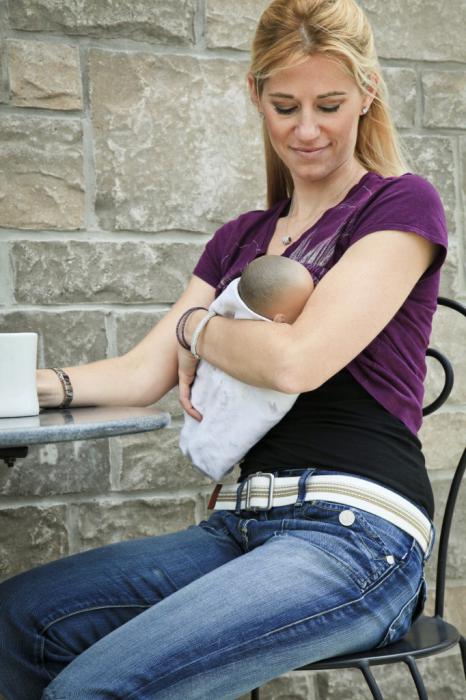
Drinking coffee while breastfeeding requires high-quality production. It is better if it is freshly ground beans - such a drink will have much less caffeine than one that uses a ready-made, purchased product. Also, if the grains are not roasted, they must be pre-roasted, and the grinding itself must be coarse. This will all help reduce the amount of caffeine in your favorite drink. Also try drinking coffee with milk, this may reduce the amount of drink you consume, but the taste will remain.
If we talk about the instant product, it contains many times more caffeine than ground. This is due to the fact that not the highest quality grains are used to prepare the instant drink (since, in principle, the buyer only sees the final product).
Thus, if a mother wants to drink a cup of coffee while breastfeeding, it is better that it be natural. This will cause less harm to the baby.
I need to say a few more words about green coffee, which has become so popular lately. Ladies use it for weight loss. Of course, after giving birth, many people want to return to their former shape, but you shouldn’t do it so quickly. First of all, you should focus on the needs of your child, and also take into account your changed body. After giving birth, some time must pass for it to return to normal. Well, after that you can use green coffee for weight loss.
Truth and myths about the dangers of coffee during lactation
Coffee is one of the most popular drinks, but it is around it that various legends and myths have developed. Is instant coffee really that bad for breastfeeding? Many people value the drink for its invigorating effect on the body. With a cup of coffee, the morning becomes good, the body finally wakes up, and increased activity appears.
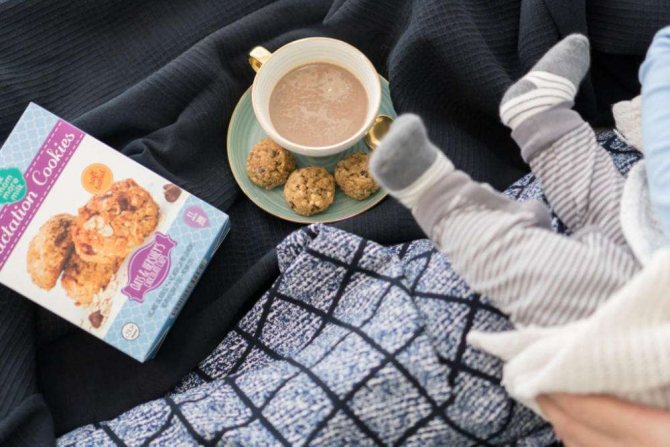
In addition, scientists have found that moderate consumption of the drink does not have a negative effect on the functioning of the cardiovascular system and reduces the risk of breast cancer, liver cancer and diabetes. But all of the above applies to natural grains and has nothing to do with a freeze-dried product.
Nursing mothers should understand that caffeine immediately passes into breast milk. The baby’s body has not yet learned to cope with heavy substances, so they accumulate every day, this can lead to unpleasant consequences.
What can happen to a child if a mother uses sublimate during lactation:
- dehydration;
- the occurrence of allergic reactions;
- constipation;
- sleep disturbance;
- increased excitability;
- tearfulness;
- irritability.
Before drinking a cup of an invigorating drink, a nursing mother should weigh the pros and cons. What should a tired woman do who doesn’t get enough sleep at night? We offer some simple tips that will help you find a compromise between caring for your baby’s health and your own well-being:
- During the first months, avoid drinking any coffee. Take the opportunity to sleep with your baby instead of rushing to wash the floors or cook dinner.
- All harmful components of the sublimate will enter the baby’s body with breast milk. Keep this in mind when you want to quickly brew some granules to perk you up. Better drink healthy herbal tea or chicory.
- If you can’t do without coffee, buy good quality beans and grind them yourself. It is important when exactly you drink the drink. It is better to drink in the morning, immediately after feeding. In this case, most of the caffeine will have time to leave the body and will not penetrate into the milk.
- Drink a natural drink with cream or milk - this will help to at least partially compensate for the loss of calcium, which is so necessary during breastfeeding.
Decaffeinated coffee
If the package says that the product does not contain caffeine, you should know that this is a lie. Even though the grains are pre-treated to reduce the amount of the substance in the final product, it is still present there. Doctors warn that such coffee can cause significant harm to nursing and pregnant women. When processing grains, chemicals are used that are unsafe for health. In addition, the taste and aroma are lost during the decaffeination process, so it is better for nursing mothers to avoid this product.
Green coffee
Unroasted coffee beans are used to make the drink. Pediatricians allow the use of this product, but only in small quantities and six months after birth. There is less caffeine in this form, but nursing mothers should very carefully introduce it into the diet and monitor the well-being of the baby.

Coffee with milk
The invigorating drink increases the load on the kidneys and has a diuretic effect, due to which calcium and other vital substances are washed out of the woman’s body. Can a nursing mother drink coffee with milk? Those who drank this drink during pregnancy and lactation claim that there were no deviations in the main test parameters.
In addition, milk is a source of calcium and slows down the intake of caffeine into the body of a nursing woman.
Cons of the drink:
- does not reduce the amount of caffeine in the cup;
- takes longer to be absorbed by the body;
- not suitable for those who have an individual intolerance to cow protein.

How does drinking coffee affect lactation?
In principle, reasonable consumption of this fragrant drink should not affect the amount of milk, but if there is a large amount of it in your diet at the time when you are feeding your baby , this may reduce the amount produced. Therefore, it is recommended to follow some recommendations when drinking this drink, as well as follow a diet so that the milk does not go to waste. Or even replace coffee while breastfeeding with other healthier and less dangerous drinks.
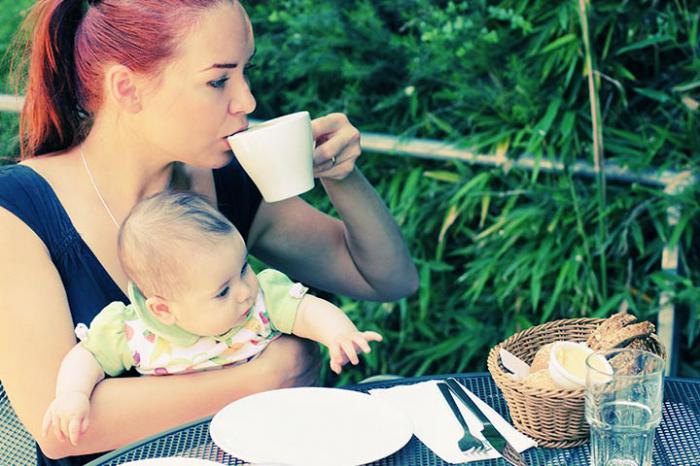
How to use it correctly
In order not to harm your own body, as well as your baby, you should exercise caution and extreme moderation in use. A young mother should understand that it is worth holding off on her habits and desires for now if the attending physician is categorically against it.
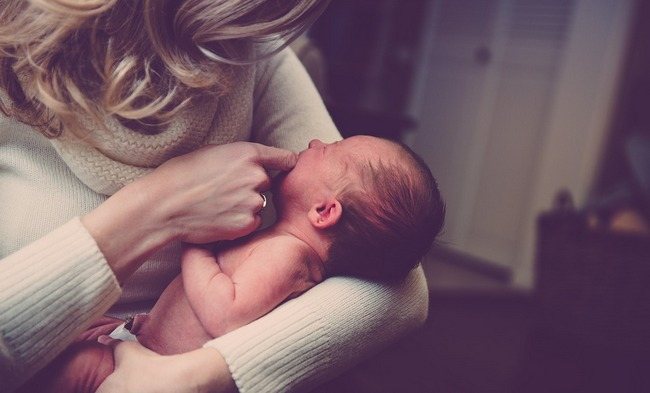
But when there are no contraindications, you must be guided by the following principles when drinking natural coffee while breastfeeding:
- It is better to limit yourself to one cup a day (or even several days).
- You can pour crushed grains with hot water and leave to infuse (this method allows you to reduce the strength).
- It is appropriate to add a little warm milk, this will significantly reduce the concentration and reduce the strength.
- There is no need to add a lot of sugar, condensed milk, syrups, cream, ice cream, honey, nuts, cinnamon, vanilla, butter, chocolate and other additives - this can cause allergies in a newborn.
- It is better not to consume chocolate, green tea, cocoa and sweets on this day - these products also contain hidden caffeine.
- In order not to bring the body to a fluid deficit (dehydration), it is necessary to drink additional amounts of clean water.
- You should definitely eat more foods that contain calcium (cottage cheese, milk, sour cream, yogurt, hard cheese).
- Drink only after feeding, this will allow breast milk to partially clear.
If a girl finds herself in a cafe, it is recommended to choose only the best and most natural varieties of grains. From the menu you can choose Cappuccino or Americano with milk; you should avoid strong Espresso. It is also better to avoid bright additives, syrups, sprinkles, sugar, alcohol, whipped cream and grated chocolate.
How can you replace coffee while feeding a baby?
If you still decide not to drink coffee while feeding your baby, so as not to harm him or for some other reason, but periodically you want it, then you can use substitutes. It can be:
- chicory;
- if the child is not allergic, then you can use various herbal infusions;
- Various herbal teas are also suitable;
- It will be useful to brew dill water; instead of dill, you can use anise or caraway seeds.
Such drinks can replace coffee during breastfeeding, however, as with the introduction of other products, they should be included carefully in the mother's diet.

Of the above substitutes, chicory is usually the most suitable. This natural product is very beneficial for the body, and its taste is very similar to your favorite drink.
In order to improve the taste, you can add coffee to the cup; this will not harm nursing mothers. It will be worse if you restrain your taste preferences, as this is stress for the body.
Harm to the baby
If you overdo the dose or disobey the doctor’s recommendations, there is a risk of getting a number of unpleasant complications:
- It is better to deny yourself the pleasure if you need to take certain medications at the same time. There is a risk of causing an overdose or incompatibility.
- If you overdo it with the permissible dose, you can cause nervousness, irritability and anxiety in the baby. The child may sleep poorly, suffer from insomnia, be anxious and capricious.
- There is a possibility of causing intestinal problems, colic and constipation in the baby.
- Possible dehydration and loss of calcium do not have the best effect on the functioning of organs and the quality of future teeth in the baby.
- In some cases, an allergy may occur, which is manifested by shortness of breath, skin rashes and other unpleasant symptoms.
Read also: Is it possible to eat walnuts while breastfeeding - Komarovsky
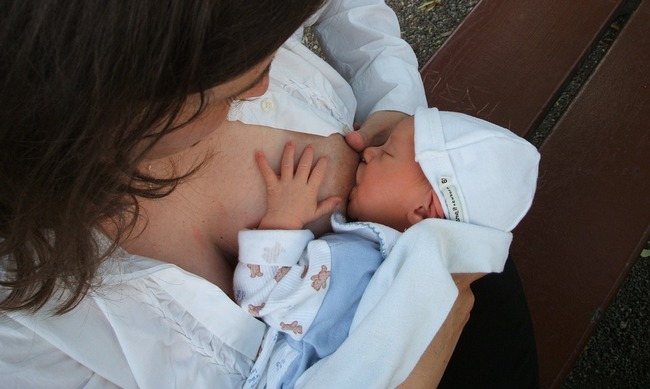
Before use, be sure to consult with an experienced doctor, this will help the young mother avoid problems and protect the baby from possible danger. If the doctor does not allow this to be included in the daily menu, a woman should not risk violating the recommendations.


